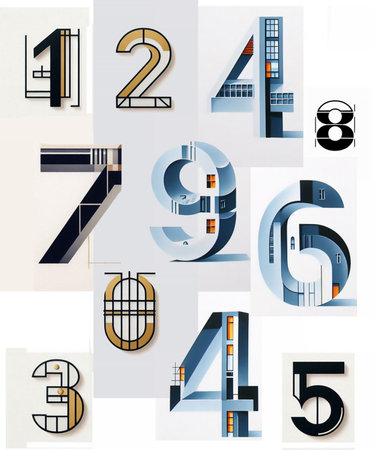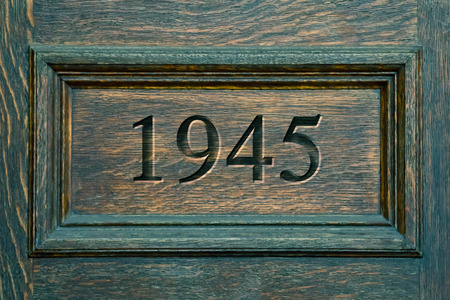Introduction to Sun Sign Compatibility in British Context
Astrology has long held a unique place within British society, particularly when it comes to the compatibility of sun signs. In the UK, references to star signs are not merely confined to obscure corners but appear regularly in mainstream media such as newspapers, magazines, and popular television shows. Horoscopes are a staple feature in daily tabloids like The Sun or Metro, where Britons from all walks of life often check their astrological forecasts over morning tea or during their commute. Beyond print and broadcast, conversations about sun sign compatibility frequently emerge in social settings—from casual pub chats to workplace banter—serving both as light-hearted icebreakers and as tools for personal reflection. This prevalence underlines how astrology is woven into the fabric of everyday British life, shaping both self-perception and interpersonal dynamics through a uniquely local lens.
Historical and Cultural Views on Astrology in the UK
Sun sign astrology has woven itself into the fabric of British society across centuries, evolving from an elite fascination to a staple of everyday conversation. To understand the modern British perspective on sun sign compatibility, it is essential to trace its cultural and historical journey—from Elizabethan mysticism through Victorian scepticism to its contemporary tabloid renaissance.
Elizabethan Mysticism and Early Popularity
Astrology in Britain gained significant traction during the Elizabethan era, where celestial influences were often consulted by monarchs and courtiers alike. Astrologers such as John Dee served as advisors to Queen Elizabeth I, blending scientific curiosity with mystical beliefs. During this period, sun signs were primarily linked to broader astrological charts rather than isolated compatibility analysis, but the seeds of zodiacal interest were sown among both elites and commoners.
The Victorian Era: Rationalism and Resistance
As Britain entered the age of Enlightenment and later the Victorian era, rationalist thought began to challenge traditional beliefs—including astrology. Despite increased scepticism, public fascination did not wane entirely. Almanacs featuring astrological predictions continued circulating among the working class, reflecting a dichotomy between academic dismissal and popular appeal. The concept of sun sign compatibility persisted, albeit more as folklore than formal science.
20th Century: Tabloid Resurgence and Mainstream Acceptance
The post-war period marked a notable resurgence for sun sign astrology in Britain. With the rise of mass media—especially newspapers like The Sun, The Daily Mail, and The Mirror—horoscopes became a daily ritual for millions. This era witnessed sun sign compatibility transform into a light-hearted social tool, referenced at dinner parties or in workplace banter. The following table highlights key phases in British astrology’s evolution:
| Era | Cultural Context | Astrology’s Role |
|---|---|---|
| Elizabethan (16th Century) | Mysticism & Court Intrigue | Elite consultation; integration with politics & science |
| Victorian (19th Century) | Rationalism & Industrialisation | Scepticism among elites; popular almanacs for masses |
| Modern (20th-21st Century) | Mass Media & Pop Culture | Mainstream entertainment; everyday social reference |
Contemporary Social Dynamics and Lasting Influence
Today, sun sign astrology’s historical journey informs its place within British society. While many Britons approach compatibility with characteristic irony or humour, its presence in tabloids and casual chats points to enduring cultural resonance. Whether believed wholeheartedly or enjoyed tongue-in-cheek, sun sign compatibility remains a uniquely persistent thread within the UK’s social tapestry.

3. Astrological Compatibility and British Social Behaviour
Within the context of British society, the notion of sun sign compatibility is often approached with a distinctive subtlety, reflecting the nation’s characteristic understatement. While astrology may not always be explicitly discussed, underlying perceptions regarding star signs can subtly influence social interactions across various spheres of life. In friendships, for instance, British individuals may quietly consider sun sign traits when assessing compatibility, sometimes attributing a friend’s reservedness to their Capricorn nature or finding common ground through shared Gemini wit. This nuanced awareness rarely manifests as overt discussion; instead, it is woven into casual banter or light-hearted comments at gatherings.
When it comes to romance, the famed British reserve shapes how astrological compatibility features in dating dynamics. Although few would openly admit to making decisions based on horoscopes, anecdotal evidence suggests that some might privately weigh the supposed harmony between their sign and a potential partner’s. Gentle teasing about being “too fiery for a Virgo” or “not quite spontaneous enough for an Aries” serves as both an ice-breaker and a covert filter, allowing individuals to navigate attraction without direct confrontation—a hallmark of British courtship rituals.
The workplace offers another lens through which to examine these dynamics. In professional settings where hierarchy and etiquette are paramount, references to sun sign compatibility tend to be discreet and non-intrusive. Colleagues might jokingly attribute a manager’s methodical approach to their Taurus disposition or explain team tension by alluding to the clash of strong-willed Leos. Such observations provide a socially acceptable way to acknowledge interpersonal differences while maintaining professionalism. Ultimately, in Britain’s understated culture, astrology functions less as dogma and more as a playful narrative layer—one that helps people make sense of social behaviour without breaching the boundaries of decorum.
4. Humour, Scepticism, and Public Discourse
British society has long been renowned for its distinctive sense of humour and characteristic scepticism, traits that significantly colour public attitudes towards astrology and sun sign compatibility. Rather than accepting astrological predictions at face value, many Britons approach the subject with a blend of irony, wit, and critical detachment. This interplay creates a unique social environment where astrology is both a source of entertainment and a topic for light-hearted debate.
The Role of Humour in Astrological Conversations
Astrology columns in British newspapers and magazines are often written with a tongue-in-cheek tone, subtly poking fun at both the predictions themselves and their readers. This tradition reflects a broader cultural tendency to view astrology as an amusing diversion rather than a strict guide to personal relationships or decision-making. Friends might jest about being incompatible due to their star signs, but such remarks are typically delivered with an unmistakable wink.
Scepticism: A Cultural Hallmark
Scepticism is deeply embedded in British public discourse on astrology. Surveys suggest that while many people read horoscopes, fewer actually believe them. The following table summarises typical British attitudes towards astrological predictions:
| Attitude | Description | Common Expression |
|---|---|---|
| Sceptical | Questions validity of astrology, seeks evidence | “Take it with a pinch of salt” |
| Humorous | Uses astrology as a social icebreaker or joke | “That explains everything!” (sarcastically) |
| Curious but Detached | Reads horoscopes out of interest but remains unconvinced | “Just for a laugh” |
Astrology in the Media: Satire and Commentary
British media frequently employs satire when covering astrological topics. Comedians and columnists alike use sun sign compatibility as fodder for sketches and opinion pieces, highlighting the gap between public fascination and private disbelief. This duality allows astrology to flourish as part of popular culture without requiring widespread conviction in its claims.
Public Discourse and Social Dynamics
The combination of humour and scepticism ensures that discussions about sun sign compatibility remain inclusive and low-stakes within British society. Whether debated over pints in the pub or shared in group chats, these conversations reinforce social bonds through playful banter rather than rigid belief systems. Ultimately, it is this light-hearted approach that sustains astrology’s enduring presence in Britain’s social fabric.
5. Contemporary Trends and Digital Engagement
In recent years, the landscape of sun sign compatibility in the UK has been notably influenced by contemporary trends, particularly through digital media, celebrity culture, and mobile applications. These factors have created new pathways for engagement and shaped public attitudes across various age groups, offering a distinctly British perspective on astrological relationships.
The Influence of Digital Media
Digital platforms such as social media, online magazines, and dedicated astrology websites have become central to how Britons consume and share information about sun sign compatibility. The proliferation of Instagram astrology memes, TikTok horoscopes, and YouTube star sign analyses has not only made astrology more accessible but also democratised its discussion. This digital shift allows individuals from diverse backgrounds to engage with and question traditional compatibility narratives in real time, fostering both scepticism and enthusiasm within different communities.
Celebrity Culture and Public Discourse
British celebrity culture further amplifies interest in sun sign compatibility. High-profile personalities often discuss their star signs in interviews or on social media, sparking public debate about which signs are the best matches. Tabloid coverage of celebrity relationships—often framed through the lens of astrological compatibility—has become a staple in the UKs entertainment news cycle. These discussions influence collective perceptions, especially among younger generations who closely follow pop culture trends.
Mobile Apps: Personalisation and Instant Insights
The advent of astrology-focused mobile apps has revolutionised personal engagement with sun sign compatibility. British users now turn to apps such as Co–Star or The Pattern for tailored daily insights, compatibility analyses, and interactive features. These technologies offer instant gratification and a sense of personal connection to astrological concepts, appealing particularly to millennials and Gen Z who value both self-exploration and digital convenience.
Age Groups: Generational Differences in Engagement
The impact of these trends varies significantly by age group in the UK. Younger Britons (teens to early thirties) are typically more engaged with digital astrology, embracing its playful and social aspects. For older generations, there remains a blend of nostalgia for traditional newspaper horoscopes alongside curiosity towards modern interpretations. This generational divide highlights the evolving role of technology in shaping how different cohorts interpret and value sun sign compatibility.
Overall, the interplay between digital innovation, celebrity influence, and mobile app technology is redefining how sun sign compatibility is perceived and discussed within British society. As these trends continue to evolve, they reinforce astrology’s enduring appeal while simultaneously adapting it to meet contemporary cultural expectations.
6. Conclusion: The Ongoing Role of Sun Signs in British Social Dynamics
The compatibility of sun signs, though rooted in ancient astrological tradition, remains an enduring thread within the fabric of British social life. From playful banter at the pub to more reflective conversations over tea, Britons have long integrated sun sign compatibility into their daily interactions. This phenomenon is not merely a relic of superstition; rather, it has evolved to become both a conversational touchpoint and a means of exploring personality dynamics in a uniquely British context.
The interpretation of sun sign compatibility continues to shift with changing societal attitudes. While earlier generations may have viewed astrology with a blend of scepticism and curiosity, contemporary British society often treats it as a light-hearted yet meaningful tool for self-reflection and social connection. This evolution reflects the broader trend in the UK towards individual expression and open-mindedness—qualities that allow astrology to flourish as both entertainment and informal guidance.
Sun sign discussions also serve a practical function in British social settings. They offer a non-confrontational entry point for getting to know others, breaking the ice, or even diffusing tension with humour. In workplaces, friendship circles, and family gatherings, referencing star signs allows for gentle teasing or deeper bonding, all within the bounds of classic British wit and reserve.
Ultimately, the significance of sun sign compatibility in Britain lies less in its literal truth than in its symbolic power to facilitate connection and conversation. Whether taken seriously or indulged in as a bit of fun, these astrological frameworks help shape the subtle codes of interaction that characterise British society. As cultural attitudes continue to evolve, so too will the ways in which Britons interpret and use sun sign compatibility—ensuring its place as an ongoing element in the rich tapestry of everyday life.


